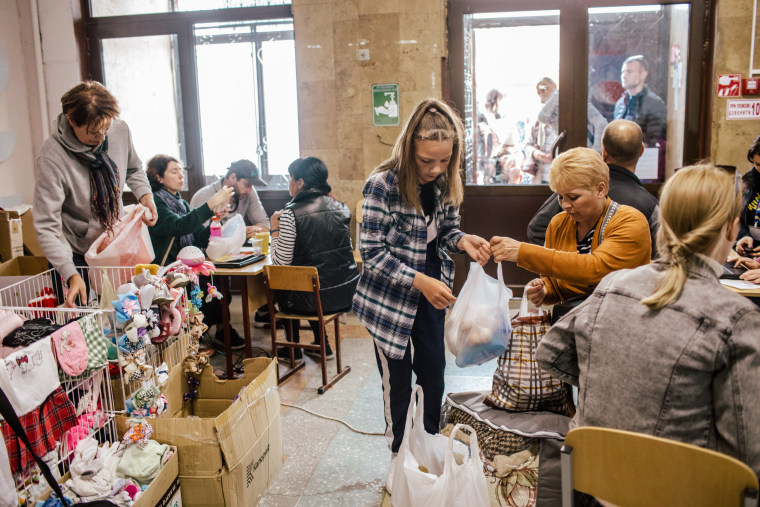ODESA, Ukraine — Much of Ukraine remained quiet on Russia’s Victory Day and after, despite rampant speculation that the Kremlin would target its cities with missile strikes and bombardments.
Odesa, however, was not so lucky.
Its residents were ordered to stay home Monday, and European Council President Charles Michel had to take cover during a visit with Ukrainian Prime Minister Denys Shmyhal as seven Russian missiles struck the southern port city, Ukraine’s Operational Command South said, killing at least one person and injuring several others.
As Russian forces have attempted to push west along the Black Sea, Odesa is one of Ukraine’s final strongholds on the country’s southern coast, but increasing missile strikes in recent weeks have placed additional strain on those who live or have fled here.
May 10, 202201:41
Vladislav Nazarov, an officer with the Operational Command South, said Tuesday the Russian forces are further leaning on “obsolete Soviet-made missiles,” which have poor targeting and are hitting nonmilitary sites, killing civilians.
“This creates psychological pressure as if they are under constant threat,” he said of the residents, sharing that the missiles hit a shopping mall, a warehouse and two hotels.
Many Ukrainians from southern cities have evacuated from their homes in the hopes of finding safety in Odesa, which is known for its sunbathing, barbecues, art scene and swimming in the Black Sea, especially in these early weeks of May. But land mines now cover its beaches and regular missile strikes have made the city increasingly tense, especially for those who have seen the atrocities committed by the Kremlin’s forces.
 Refugees receive goods and supplies at a collection and distribution center in Odesa on May 3, 2022.Erin Trieb for NBC News
Refugees receive goods and supplies at a collection and distribution center in Odesa on May 3, 2022.Erin Trieb for NBC News
Adding to the anxiety were the recent arrests of alleged Russian saboteurs who, authorities said, were aiming to sow discord May 2, the anniversary of a 2014 clash between pro-Russian and pro-European Ukrainians in Odesa. The city went on lockdown that day and Russia struck the area with two missiles, killing a teenage boy and injuring his sister.
The frequency of the missile strikes is having an effect on everyone. It even has some looking at other parts of Ukraine for safety.
Pauline Batakova, 16, and her family escaped to Odesa from Kherson, another coastal city now under Russian occupation. She and her parents were able to make it here after weeks of hiding in a basement with five other families.
Despite making new friends and finding regular work at a facility for refugees in the city center, where people lined up out the door in search of food and clothes, the teenager is preparing to find a new home again. Her pregnant mother is too afraid to leave the house where they’re staying in Odesa, particularly as the number of Russian attacks rises, and so the family is moving to a safer city in western Ukraine.
“My dad and I would like to stay here, maybe, but my mom is taking it very hard emotionally,” Batakova said at the end of her shift at the refugee center, where she checked in dozens of displaced Ukrainians like her at a short wooden table crammed into the lobby of an elementary school. “It will be better for her.”
The sense of relief that Odesa recently provided is increasingly shifting to one of fear. After the sinking of the Russian flagship Moskva, many here felt able to breathe easy. That feeling began to dissipate two weeks ago after a Russian missile hit an apartment, killing eight, including a young mother and her newborn.

